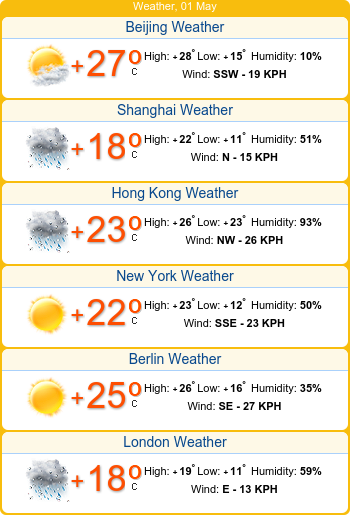Afghan dilemma prolongs suffering
Last week, an international meeting of Special Envoys on Afghanistan, along with United Nations Secretary General António Guterres, met in Doha to discuss the dire situation in Afghanistan. Representatives from 25 countries, including the United States, China, Russia and Pakistan, as well as major European aid donors, attended the two-day meeting. The Taliban, the de facto leaders of Afghanistan since August 2021, were not invited. The Taliban’s ambassador-designate to the UN, Suhail Shaheen, slammed that decision, claiming it was “discriminatory and unjustified.” But – the Taliban’s snub notwithstanding – there were legitimate fears leading up to last week by human-rights activists that the meeting would consider the official recognition of the Taliban. This came after UN Deputy Secretary General Amina Mohammed made comments last month that the international community “could find those baby steps to put us back on the pathway to recognition” of the Taliban. As it currently stands, no country has officially recognized the Taliban as the legitimate government of Afghanistan. To allay fears, Guterres said after the meeting that the intention was “not about recognition of the de facto Taliban authorities,” but about developing a “common approach” to the country’s dire situation. Since regaining power, the Taliban have severely repressed the rights of women and girls, banning them from employment and education, enforced a strict code of veiling and banned women from long-distance travel without a male family member. In March, a statement by the UN Office of the High Commissioner for Human Rights called the repression of Afghan women an “affront to all standards of dignity, equality and humanity.” Arguably a bigger concern for the UN is the Taliban’s edict last year to ban women from working for international non-governmental organizations (NGOs), and its recent decision to extend the ban to UN agencies. This has intersected with the ongoing humanitarian crisis, which has plunged much of the population into poverty. According to the UN, more than 28 million Afghans need some form of humanitarian assistance. The ban has prevented UN agencies from providing vital aid to women and girls throughout Afghanistan. Under strict Taliban rules, men cannot provide aid to women, preventing the latter from accessing life-saving food, water and medicine. Guterres used last week’s meeting in Doha to express his concern over the lack of funding by the international community to address the crisis. According to the UN chief, a “mere $294 million” has been received from donors out of a target of US$4.6 billion. Last month, the UN warned the Taliban that “the latest ban will further hamper the delivery of critical assistance to millions of Afghans in need of urgent support, with many of the worst impacted being women and girls.” Worryingly, this shows the international community is at loggerheads in how to deal with the Taliban, protect the rights of women and solve the humanitarian crisis. Difficult choices The meeting in Doha also – and unsurprisingly – failed to reach a consensus. After the meeting, Guterres stated that “the UN will continue to use its convening power to advance a forward-leaning approach which puts the Afghan people first.” This suggests more of the same – the same approach that hasn’t protected Afghan women or solved the humanitarian crisis in Afghanistan. The international community faces a stark choice over the coming months. Official recognition of the regime is seemingly off the table, but a form of engagement with the Taliban may be an option. The international community could dangle a carrot of increased engagement with the regime, including participating in multilateral dialogues and some access to donor funds, in exchange for the Taliban meeting their international human-rights obligations. This would include allowing the full participation of women and girls in public life, including the ability to work and learn, and efforts to solve the humanitarian crisis through some involvement in donor funds and humanitarian aid. The advantage for the Taliban is that it would give the regime a form of legitimacy and an opportunity to show Afghans that they are interested in, and capable of, solving the problems the country faces, particularly the humanitarian crisis. But this approach isn’t without problems. Giving the Taliban access to humanitarian aid runs the risk of help not getting to people in need, instead falling victim to the regime’s notorious corruption. Furthermore, the Taliban have repeatedly claimed their stance on women is consistent with its strict interpretation of Islam. Changing this stance could well be a bridge too far and cause disharmony between the moderate and radical factions of the regime. Regardless of the decision the international community makes, the Taliban should remember that they w


Last week, an international meeting of Special Envoys on Afghanistan, along with United Nations Secretary General António Guterres, met in Doha to discuss the dire situation in Afghanistan.
Representatives from 25 countries, including the United States, China, Russia and Pakistan, as well as major European aid donors, attended the two-day meeting.
The Taliban, the de facto leaders of Afghanistan since August 2021, were not invited.
The Taliban’s ambassador-designate to the UN, Suhail Shaheen, slammed that decision, claiming it was “discriminatory and unjustified.”
But – the Taliban’s snub notwithstanding – there were legitimate fears leading up to last week by human-rights activists that the meeting would consider the official recognition of the Taliban.
This came after UN Deputy Secretary General Amina Mohammed made comments last month that the international community “could find those baby steps to put us back on the pathway to recognition” of the Taliban.
As it currently stands, no country has officially recognized the Taliban as the legitimate government of Afghanistan.
To allay fears, Guterres said after the meeting that the intention was “not about recognition of the de facto Taliban authorities,” but about developing a “common approach” to the country’s dire situation.
Since regaining power, the Taliban have severely repressed the rights of women and girls, banning them from employment and education, enforced a strict code of veiling and banned women from long-distance travel without a male family member.
In March, a statement by the UN Office of the High Commissioner for Human Rights called the repression of Afghan women an “affront to all standards of dignity, equality and humanity.”
Arguably a bigger concern for the UN is the Taliban’s edict last year to ban women from working for international non-governmental organizations (NGOs), and its recent decision to extend the ban to UN agencies.
This has intersected with the ongoing humanitarian crisis, which has plunged much of the population into poverty. According to the UN, more than 28 million Afghans need some form of humanitarian assistance.
The ban has prevented UN agencies from providing vital aid to women and girls throughout Afghanistan. Under strict Taliban rules, men cannot provide aid to women, preventing the latter from accessing life-saving food, water and medicine.
Guterres used last week’s meeting in Doha to express his concern over the lack of funding by the international community to address the crisis. According to the UN chief, a “mere $294 million” has been received from donors out of a target of US$4.6 billion.
Last month, the UN warned the Taliban that “the latest ban will further hamper the delivery of critical assistance to millions of Afghans in need of urgent support, with many of the worst impacted being women and girls.”
Worryingly, this shows the international community is at loggerheads in how to deal with the Taliban, protect the rights of women and solve the humanitarian crisis.
Difficult choices
The meeting in Doha also – and unsurprisingly – failed to reach a consensus.
After the meeting, Guterres stated that “the UN will continue to use its convening power to advance a forward-leaning approach which puts the Afghan people first.”
This suggests more of the same – the same approach that hasn’t protected Afghan women or solved the humanitarian crisis in Afghanistan.
The international community faces a stark choice over the coming months.
Official recognition of the regime is seemingly off the table, but a form of engagement with the Taliban may be an option.
The international community could dangle a carrot of increased engagement with the regime, including participating in multilateral dialogues and some access to donor funds, in exchange for the Taliban meeting their international human-rights obligations.
This would include allowing the full participation of women and girls in public life, including the ability to work and learn, and efforts to solve the humanitarian crisis through some involvement in donor funds and humanitarian aid.
The advantage for the Taliban is that it would give the regime a form of legitimacy and an opportunity to show Afghans that they are interested in, and capable of, solving the problems the country faces, particularly the humanitarian crisis.
But this approach isn’t without problems.
Giving the Taliban access to humanitarian aid runs the risk of help not getting to people in need, instead falling victim to the regime’s notorious corruption.
Furthermore, the Taliban have repeatedly claimed their stance on women is consistent with its strict interpretation of Islam. Changing this stance could well be a bridge too far and cause disharmony between the moderate and radical factions of the regime.
Regardless of the decision the international community makes, the Taliban should remember that they will only ever gain legitimacy at home and abroad if they have the country’s best interests in mind.
This means finding solutions to the humanitarian crisis, rebuilding the economy and treating citizens – including women – equally in line with Afghanistan’s international legal obligations.
Not doing so is counterproductive for the Taliban, who crave international recognition.
The international community can play a vital role in continuing to pressure the regime in meeting these commitments.
Both parties have a role to play here and it is vital both do. Otherwise, innocent Afghans will continue to suffer needlessly.












